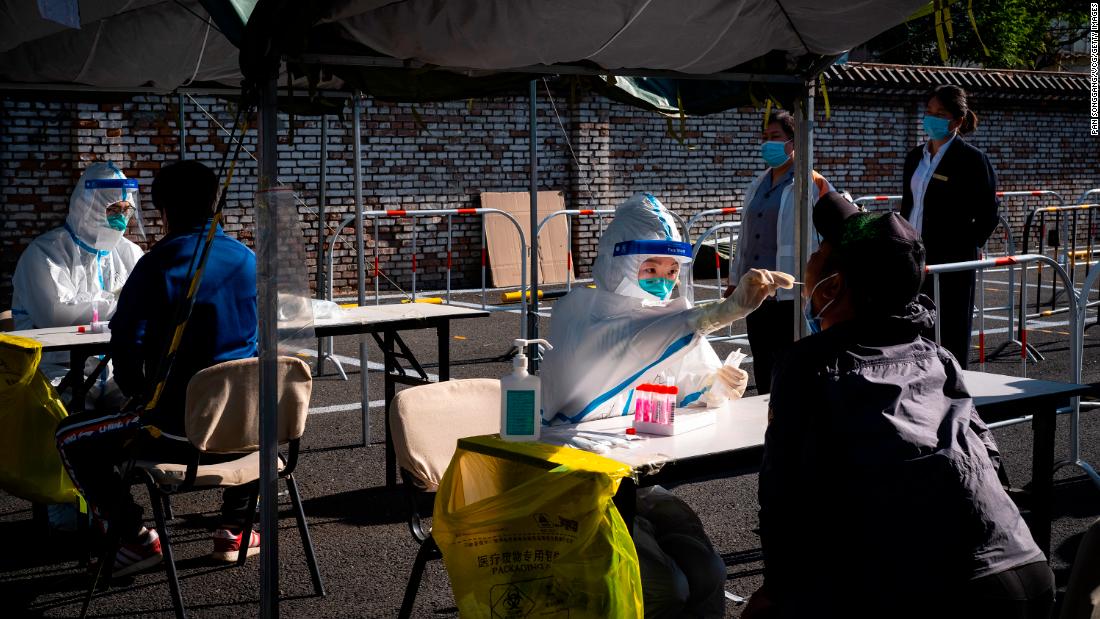
The Labor Day holiday, which started on Saturday this year, has traditionally been a busy time for mass travel and gatherings in China. But there is little holiday spirit this year, as the Chinese government doubles down on its zero-Covid policy to fight the country’s worst outbreak since Wuhan.
Many Beijing residents have rushed to stock up on food and daily necessities over the past week, fearing a Shanghai-style lockdown could cause shortages.
Beijing authorities have already rolled out several rounds of mass testing, locked down dozens of residential communities and suspended schools, but restrictions were tightened further at the start of the holiday.
On Saturday, Beijing officials announced that dining-in services at restaurants would be suspended during the holiday period.
After the holiday, workers and students will be required to present a negative Covid test — taken within the previous 48 hours — to return to work or school. And starting from May 5, residents must provide a negative Covid test — taken within the previous seven days — to enter all public venues, including taking public transport. All residents are required to take a Covid test at least once a week, according to officials.
On Sunday, Universal Beijing Resort said its Universal Studios theme park and CityWalk shopping zone would be closed immediately after receiving “guidance” from disease control authorities. It did not say when the park would reopen.
Beijing reported 59 local infections on Sunday, the highest number of daily cases in its current outbreak. The city has reported more than 300 cases since April 20.
Meanwhile, in Shanghai, officials said Sunday that community transmission in the city had been “effectively controlled,” following more than a month of stringent lockdown that confined most of its 25 million residents to their homes.
Shanghai reported 7,872 local cases Sunday, continuing a general downward trend since April 13, officials said at a news conference. The city also reported 38 new deaths, bringing the total death toll of the current outbreak to 422.
Over the past two weeks, the city has stepped up efforts to send all cases to government quarantine sites.